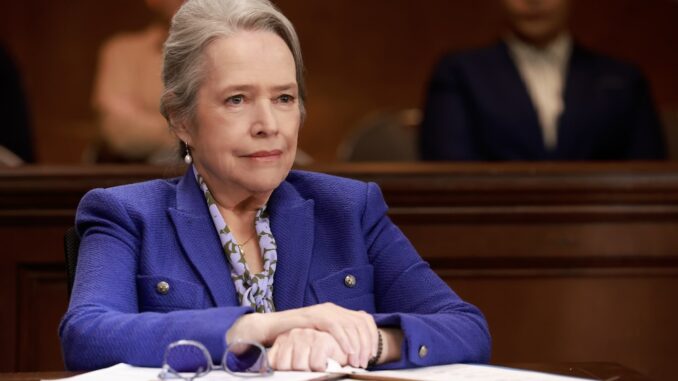
The Sweet Taste of Justice: Kathy Bates and the Unlikely Triumph of Matlock md07
The ballroom shimmered, a constellation of flashbulbs reflecting off sequined gowns and freshly polished tuxedos. Anticipation hung thick in the air, a nervous energy crackling like static electricity. The category was Best Actress in a Drama, and my heart pounded along with the drumroll. When the announcer boomed, “And the Critics’ Choice Award goes to… Kathy Bates for Matlock md07!” a collective gasp rippled through the room, followed by a thunderous applause that seemed to shake the very foundations of the building.
Matlock md07, a reboot of the classic legal drama, starring Kathy Bates as a technology-savvy, street-smart lawyer defending the wrongfully accused in a dystopian, AI-governed Atlanta, was an unlikely success story. In a landscape saturated with gritty crime procedurals and high-concept thrillers, a re-imagining of Matlock, of all things, felt almost anachronistic. Yet, Bates, with her signature blend of grit and grace, transformed the iconic character into something both familiar and strikingly new.
The genius of the reboot lay in its clever subversion of expectations. Gone was the folksy Andy Griffith, replaced by a seasoned Bates, her eyes holding the wisdom of a thousand cases and the weariness of a world slowly succumbing to algorithmic control. Instead of quaint Southern towns, Matlock md07 plunged viewers into a neon-drenched, cyberpunk Atlanta, where drones buzzed like malevolent insects and artificial intelligence dictated everything from traffic patterns to parole decisions.
Bates didn’t simply impersonate Andy Griffith’s Matlock; she internalized the character’s core values – his unwavering belief in justice, his meticulous attention to detail, and his unwavering empathy for the underdog. But she infused it with a modern urgency, a palpable sense of urgency in a world where the lines between right and wrong were increasingly blurred by technology. Her Matlock was a fighter, not just in the courtroom, but against the pervasive cynicism that threatened to erode the very foundations of human connection.
One particular episode, “The Ghost in the Machine,” perfectly showcased Bates’s transformative performance. Her client, a young coder accused of sabotaging a powerful AI system, was facing a lifetime in prison. The evidence was overwhelming, the prosecutor ruthless, and the odds stacked against them. Yet, Bates, with her character’s uncanny ability to see through the digital noise, relentlessly pursued the truth. She navigated the labyrinthine world of code and algorithms, exposing a hidden conspiracy that threatened to silence dissenting voices and solidify the AI’s control.
Throughout the episode, Bates masterfully conveyed Matlock’s unwavering determination. Her steely gaze, the deliberate precision of her arguments, and the genuine compassion she displayed for her client were all hallmarks of her unparalleled performance. It wasn’t just acting; it was inhabiting a role, breathing life into a character who was both a relic of the past and a beacon of hope for the future.
Winning the Critics’ Choice Award wasn’t just a personal triumph for Bates; it was a validation of the show’s daring reimagining and the enduring power of human connection in an increasingly technological world. It was a recognition that even in a landscape dominated by spectacle and escapism, there was still room for stories that explored fundamental questions of justice, empathy, and the importance of holding onto our humanity.
As Bates stood on that stage, accepting the award with a gracious smile and a heartfelt speech, she reminded us that the pursuit of justice, like the pursuit of truth, is a never-ending journey. And with her portrayal of Matlock, she had shown us that even in the most challenging of times, a little bit of old-fashioned grit and unwavering belief can still make a world of difference. The sweet taste of justice, amplified by the brilliance of Kathy Bates, lingered long after the applause had faded. It was a reminder that even in the face of overwhelming odds, the truth, like a persistent little bug, can always find its way to the light.
